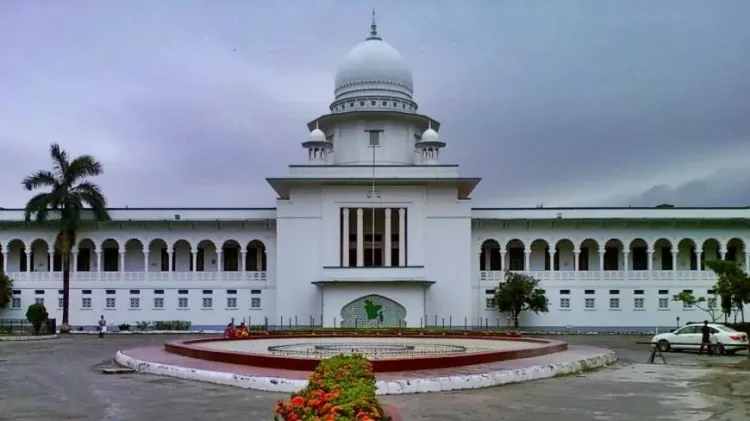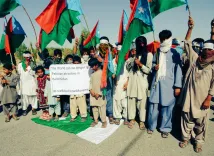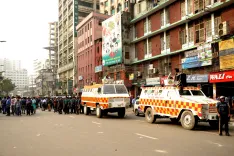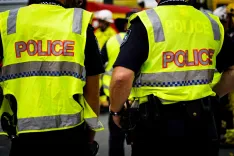Did the Bangladesh Supreme Court Just Overturn Another Liberation War Criminal's Death Sentence?

Synopsis
Key Takeaways
- Supreme Court acquitted Mobarak Hossain of war crimes.
- Death sentence overturned from the International Crimes Tribunal.
- Mobarak faced charges of crimes against humanity during the 1971 Liberation War.
- Public outrage sparked by the controversial verdict.
- Mobarak's legal representation included senior lawyers.
Dhaka, June 30 (NationPress) In a surprising turn of events, the Supreme Court of Bangladesh on Wednesday released Mobarak Hossain, a former leader of the Awami League, from a war crimes conviction, effectively reversing the death penalty issued by the International Crimes Tribunal (ICT) in 2014, as reported by local media.
Mobarak faced accusations of crimes against humanity committed during the Bangladesh Liberation War of 1971. Out of five charges brought against him, two were substantiated, leading to a death sentence for one charge and a life sentence for another.
A five-member bench of the Appellate Division, led by Chief Justice Syed Refaat Ahmed, delivered this controversial verdict after hearing an appeal against the ICT's decision, igniting outrage among many in the South Asian nation.
In December 2014, Mobarak challenged the death sentence in the Appellate Division, and hearings commenced on July 8, culminating in the verdict on July 30.
Senior attorneys SM Shahjahan and Imran A Siddique represented Mobarak, while prosecutor Gazi MH Tamim represented the ICT during the proceedings.
Following the ruling, attorney Shahjahan commented to the prominent Bangladeshi publication Prothom Alo, stating, "The tribunal had sentenced Mobarak to death for the first charge and life imprisonment for the third. Both charges have now been dismissed. With no other legal impediments, he can be released."
According to the ICT, Mobarak was implicated in the killings of 33 individuals in the villages of Tanmandail and Jangail under Akhaura Police Station, as well as the murder of Abdul Khalek in Shatyan village.
The tribunal's findings also noted his affiliation with the radical Islamist party Jamaat-e-Islami during the Liberation War.
Until 2012, Mobarak served as the organizing secretary of the Mogra Union unit of the Awami League in Brahmanbaria's Akhaura Upazila, before being expelled from the party.
He had previously been associated with Jamaat-e-Islami before joining the Awami League.
This marks the second acquittal of a war crime convict, following the recent exoneration of ATM Azharul Islam, a Jamaat leader who had been imprisoned for nearly 13 years for similar charges.
Earlier in May, Azharul Islam was released after the Supreme Court overturned his death sentence.
Jamaat was one of the extremist factions granted significant leeway in Bangladesh after the interim government led by Mohammad Yunus took control following the ousting of former Prime Minister Sheikh Hasina in August 2024.









